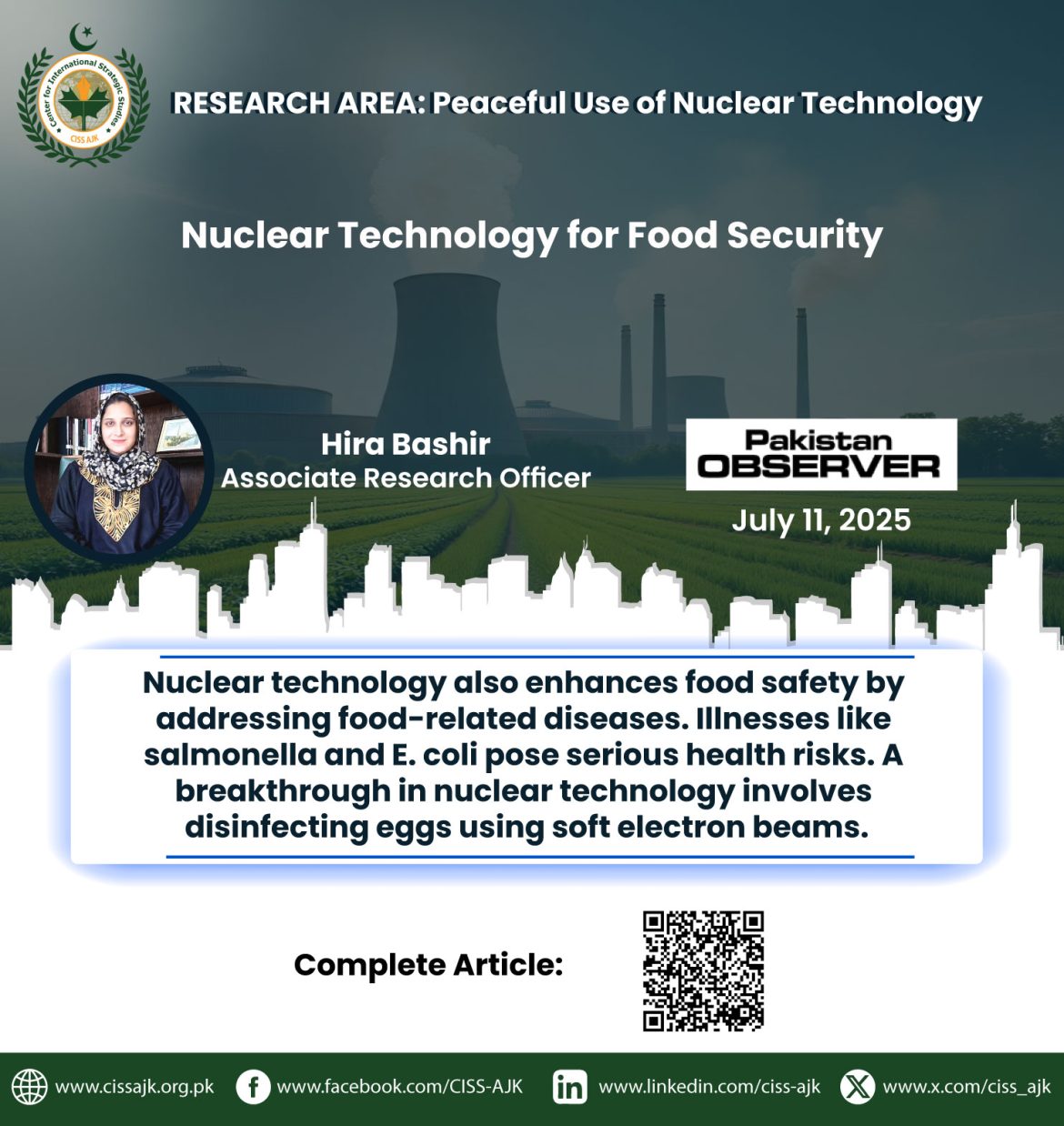FOOD security is not just about food availability, but also the economic well-being of people.
It is a critical element of human security, addressing both traditional and non-traditional threats. Ignoring these issues can lead to long-term effects such as poverty, political unrest and environmental degradation. These challenges affect people’s daily lives and the future of societies. So, what role can nuclear technology play in addressing these concerns? This article will discuss its role in agriculture and food-related diseases.
Nuclear technology has the potential to play a vital role in addressing issues impacting human security. Numerous international initiatives have been launched to leverage nuclear technology for food security. One such program is Atoms4Food, developed by the International Atomic Energy Agency (IAEA) and the Food and Agriculture Organization (FAO). This initiative aims to use nuclear technology to improve food systems in vulnerable countries. For example, in June 2025, the IAEA Director-General announced that 23 countries, including Burkina Faso, have joined this effort.
Pakistan has been using nuclear technology in fields essential for human well-being, such as energy, health and agriculture. The country collaborates with the IAEA through agencies like the Pakistan Atomic Energy Commission (PAEC) and the Nuclear Institute of Agriculture and Biology. These collaborations help produce high-yielding crop varieties, identify livestock diseases and test soil using nuclear instruments. These advancements have boosted agricultural production in Pakistan.
Currently, Pakistan faces economic challenges, including rising prices and a depreciating currency. Inflation has increased the cost of farming, making it difficult for families to meet basic needs. Agriculture plays a significant role in Pakistan’s economy, providing millions of jobs. However, climate change and floods have severely impacted agricultural productivity. By integrating nuclear technology into agriculture, the adverse effects of climate change can be minimized and crop varieties can be improved, strengthening agricultural resilience.
Nuclear technology also enhances food safety by addressing food-related diseases. Illnesses like salmonella and E. coli pose serious health risks. A breakthrough in nuclear technology involves disinfecting eggs using soft electron beams. These low-energy electrons destroy harmful microbes while preserving the egg’s integrity. This method is efficient and affordable, processing up to a million eggs daily, far surpassing traditional chemical processes. Additionally, nuclear innovations like food irradiation can extend the shelf life of food products such as meat by using controlled ionizing radiation to kill harmful germs. This technology reduces waste and ensures food safety, contributing to a more reliable food supply.
In Pakistan, similar methods are applied to prevent diseases like foot-and-mouth disease in cattle, ensuring the protection of the food supply. These efforts not only safeguard food security but also support the livelihoods of people in rural areas, ensuring farming communities remain stable and resilient. Through these efforts, food quality is improving, the economy is strengthening and the country is moving toward long-term stability. By embracing nuclear science, Pakistan is making significant progress toward a safer and stronger future. It is not just about solving current problems but creating a secure and sustainable future for generations to come.
—The writer is an Associate Research Officer at the Centre for International Strategic Studies, Azad Jammu & Kashmir.
(hirakhan5090@gmail.com)



